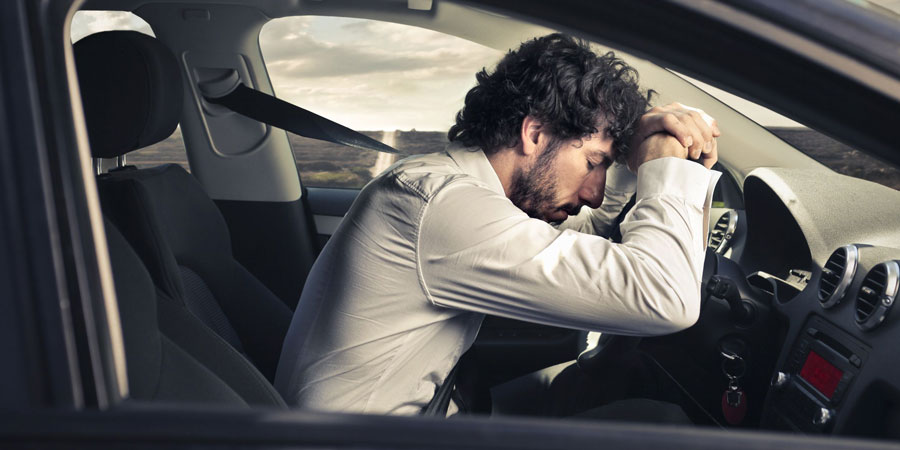
Should You Be Worried About Driving While Drowsy?
Scientists do not know why humans sleep, but they know that without sleep our bodies cannot accurately operate. The amount of sleep you get directly affects your physical health in the form of high blood pressure, obesity, and much more. Sleep can affect your mental health as well, such as with depression, anxiety, and cognitive function. Getting enough sleep can be easily overlooked, but it is necessary to live not only a healthy life, but a happy one as well.
“Proper sleeps helps you stay physically healthy, emotionally stable and mentally sharp – whether navigating rush hour traffic or responding to a co-worker in a conference call,” reads Kaiser Permanente’s Rest and Revive. “Getting sufficient sleep is not a luxury — it is a necessity — and should be thought of as a “vital sign” of good health, according to the Centers for Disease Control and Prevention (CDC). In fact, insufficient sleep is associated with a number of chronic diseases and conditions such as diabetes, cardiovascular disease, obesity, and depression. Even short-term sleep deprivation adversely affects cognitive function such as reaction time, according to a 2012 published study in the Asian Sports Medicine Journal.
Unfortunately, insomnia is too much a part of the lives we lead today in America. According to the CDC, approximately 35 percent of Americans get fewer than the needed seven hours of sleep, and 12 percent say they sleep for five hours or less.
You may be wondering, why do personal injury lawyers care so much about Americans getting enough sleep. Well, while the dangers of drunk driving and distracted driving have been well publicized, how many drivers understand the risks that sleep deprivation may have on their driving?
What Are the Risks of Driving While Drowsy?
Drivers who have had too little sleep pose a similar threat to traffic safety as those who have had three or four drinks and are too drunk to drive. (Washington Post, December 6, 2016). Astonishingly, 41% of drivers have nodded off while driving at some point in their driving history, according to a 2010 study by the American Automobile Association Foundation for Traffic Safety. One in four respondents admitted to nodding off behind the wheel in the past month. Most drivers are not even aware that they were nodding off behind the wheel, according to this AAA study. Two-thirds of those surveyed responded that they were unaware of their own fatigue when they got behind the wheel.
The most common result of driving while drowsy is for the vehicle to drift into another lane or off the roadway. This is not limited to night time driving and these statistics and behaviors apply to both males and females.
The results of driving while sleep deprived can be devastating. Falling asleep behind the wheel accounts for more than 100,000 accidents each year. Of those accidents, approximately 1,550 result in fatalities and 71,000 result in injuries, according to the National Highway Transportation Safety Board.
Drivers who slept for less than 4 of the past 24 hours had an 11.5 percent higher risk of getting in a crash. Drivers who slept 4-5 hours had a 4.3 percent higher risk; 5-7 hours had a 1.9 percent higher risk; and 6-7 hours had a 1.3 percent higher risk, than those drivers who had more than 7 hours of sleep, according to a 2016 report by the AAA Foundation for Traffic Safety.
Sleep deprivation has been proven to slow reactions to stimuli, decrease the accuracy of responses, and lead to long lapses in attention, all of which clearly have negative implications for safe driving. In 2009 in Oklahoma, one such drowsy driver drifted out of his lane on the highway, side-swiped a car and started a chain reaction which left 10 dead.
The Drexler Law Firm recently handled a tragic case where a young college student, with a bright future ahead of him, fell asleep at the wheel. The car flipped over and was struck by another oncoming vehicle. The young college student did not survive the impact.
The resulting message is clear: to ensure your own safety and the safety of others, get enough sleep. No amount of caffeine, not even you favorite Starbucks blend, will reverse the effects of sleep deprivation or prevent injury or death when fatigue catches up with you and forces your eyes to close when you are at the wheel.
Disclaimers:
The information in this blog post (“post”) is provided for general informational purposes only, and may not reflect the current law in your jurisdiction. This blog is not intended to, and does not, create an attorney client relationship, an offer of employment or a guarantee of success for clients of The Drexler Law firm. No information or representation contained in this post should be construed as an offer of employment, guarantee of success or the creation of an attorney client relationship with The Drexler Law firm, nor as legal advice from The Drexler Law Firm or the individual author. No reader of this post should act, or refrain from acting, on the basis of any information included in, or accessible through, this post without seeking the appropriate legal or other professional advice on the particular facts and circumstances at issue from a lawyer in the corresponding jurisdiction.
There are time deadlines during which a case must be brought, according to your jurisdiction or state, and failing to abide by the jurisdictional statute of limitation rules can result in your case being time-barred.
Meet David Drexler
See also, David Drexler’s blog entitled: “If You Have Been Injured, Here Is How To Know If You Have A Valid Legal Case”

 0
0